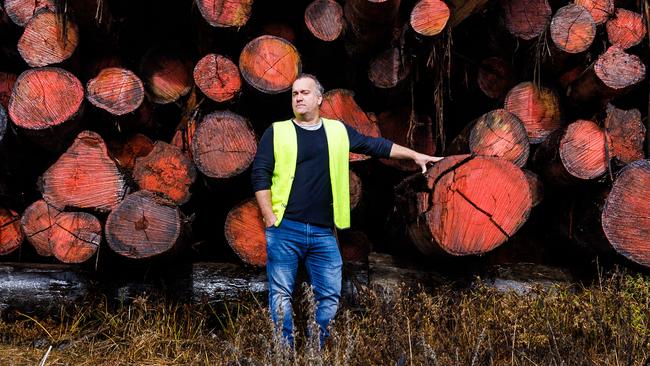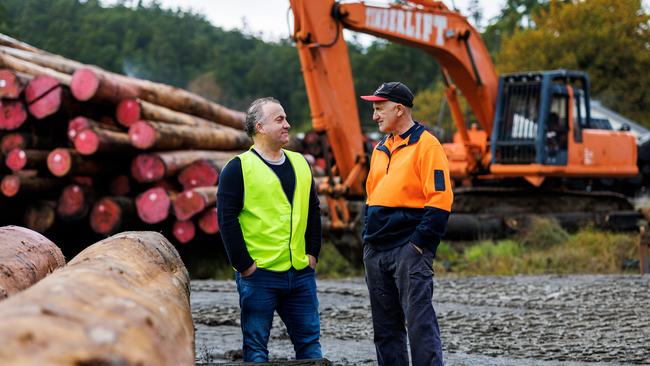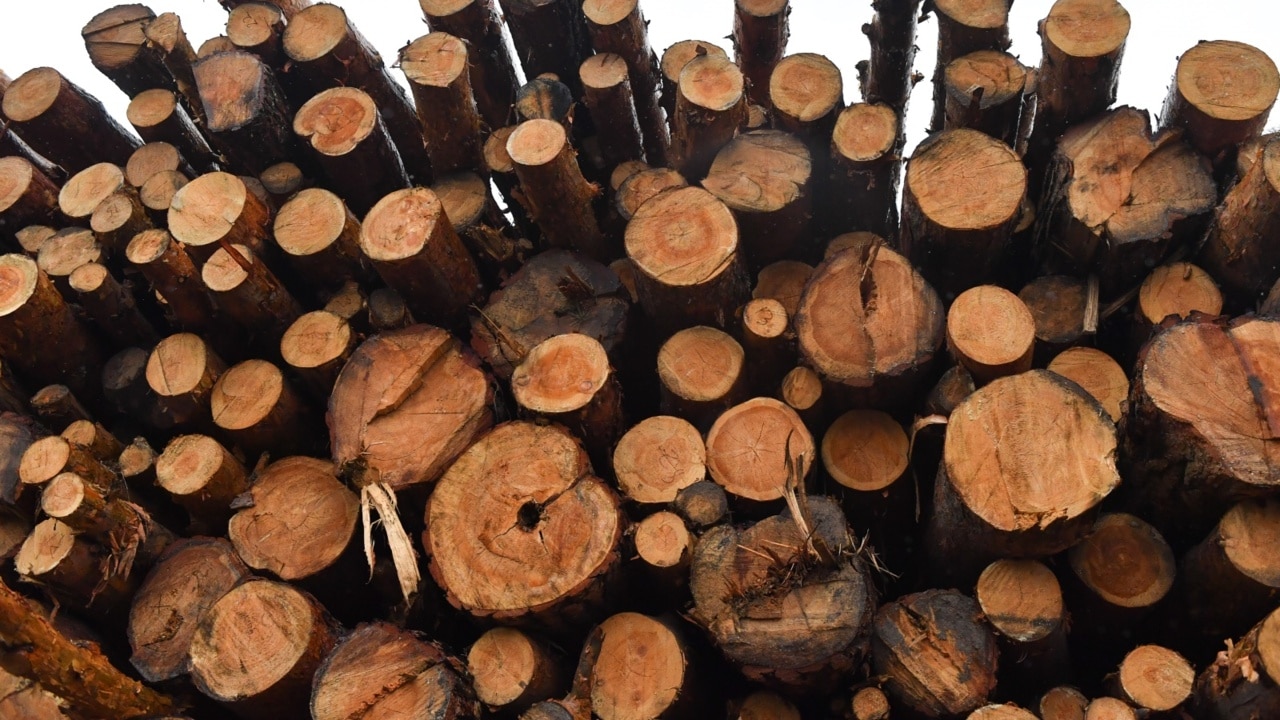End of Victorian native timber logging: From essential workers to unemployed
One of Victoria’s oldest sawmills could cease to operate following news native logging in Victoria will end early.

The hard men and women in Victoria’s Powelltown Sawmill have shed a few tears this week.
As with chief executive Dan Pote, the first they heard that the state’s native timber logging industry would be shut down six years ahead of schedule was on Tuesday, when everyone else in the state found out.
They had a tough team meeting at the site, about 85km east of Melbourne’s CBD, straight after the announcement. His staff were “disheartened”, Mr Pote said.
“This mill, I believe, is one of the oldest Victorian hardwood sawmills in the state. We have some workers that have been here for 30 years,” he said.
“To see grown men and women shed a tear or two on Tuesday after that announcement – they know their livelihoods are going to change and change big time. It’s really sad.”
The massive mountain ash logs that line the muddy yards of the historic sawmill smell earthy. And the sound of machinery turning wood chunks into chips rings throughout the yard.
A few hundred metres away is a wooden sign welcoming visitors to “Timber Town”, where just over 200 people currently live.

Mr Pote noted that during the pandemic, workers at the sawmill were considered “essential” and continued to work throughout 200-plus days of lockdowns in part to help fulfil surging demand for hardwood timber pallets across Victoria.
Now many of its 40 staff face job uncertainty after the announcement in Treasurer Tim Pallas’s budget on Tuesday that instead of wrapping up the industry by 2030, it will shut down by the end of this year.
Including an extra $200m announced on Tuesday, the government has in total pledged $875m to transition the industry.
It has promised “every single timber worker will be directly supported to find a new job”.
They say mental health support payments will be available, free TAFE courses offered to retrain workers in different industries and all native timber mills will be eligible for a voluntary transition package, whether they choose to stay in timber processing with plantation timber, or switch to other industry sectors.

When the workers heard the government released a statement titled “Delivering certainty for timber workers” – whom the government said had suffered because of years of litigation and bushfires that halted operations and limited the harvesting coupe – Mr Pote said they felt insulted.
“It has created so much uncertainty. The team you know, some of them had a future here beyond that six years (to 2030) because we would have been able to transition. Now it's very difficult,” he said.
Mr Pote said he had invested millions of dollars in transitioning to plantation timber, buying new equipment and retraining staff but on Friday said it was “an unfathomable task to try to transition in six to seven months”.
“I wish I had a magic wand,” he said. “We will try to maximise the resources we have got and look at alternatives, but it doesn’t look great, I’ve got to be honest.
“At the moment, this mill will probably shut its doors for the first time in over 100 years.”
Mr Pote, who took up the role about five years ago, lambasted the decision to close the industry before 2030 as planned, and said purchasers might turn to international suppliers, which are less regulated.

The news also came as a surprise to environmental groups, including Friends of the Earth, which has been calling for an end to native logging before 2030.
While campaign co-ordinator Cam Walker welcomed the budget decision, he acknowledged timber workers, their families and nearby communities would be hurt.
“We have argued for an end to native logging but have always said it needs to be predicated on funding for a fair transition,” he said.
“If workers are going to be looked after, the transition must be managed by the government. It cannot be left to the market.”
Mr Walker said 19 out of 20 jobs in the Victorian timber industry were now in soft wood, which was more sustainable, and the move to end native logging would allow forests to store more carbon while biodiversity was boosted and threatened species were protected from extinction.
VicForests – the for-profit business that manages sale and supply of timber harvested in Victoria’s native forests – has failed to turn a profit for three years.
Its latest annual report, for 2021-22, shows it was $54m in the red, a significant fall from the year prior, when it reported a $4.7m net loss.
The company said “ongoing” litigation had restricted the area timber could be harvested.
Kinglake Friends of the Forest and Friends of Leadbeater’s Possum brought separate legal action against VicForests, which culminated in a landmark Supreme Court ruling in 2022 that declared it must not harvest timber in East Gippsland unless the area had been surveyed to identify species at risk of extinction.








To join the conversation, please log in. Don't have an account? Register
Join the conversation, you are commenting as Logout